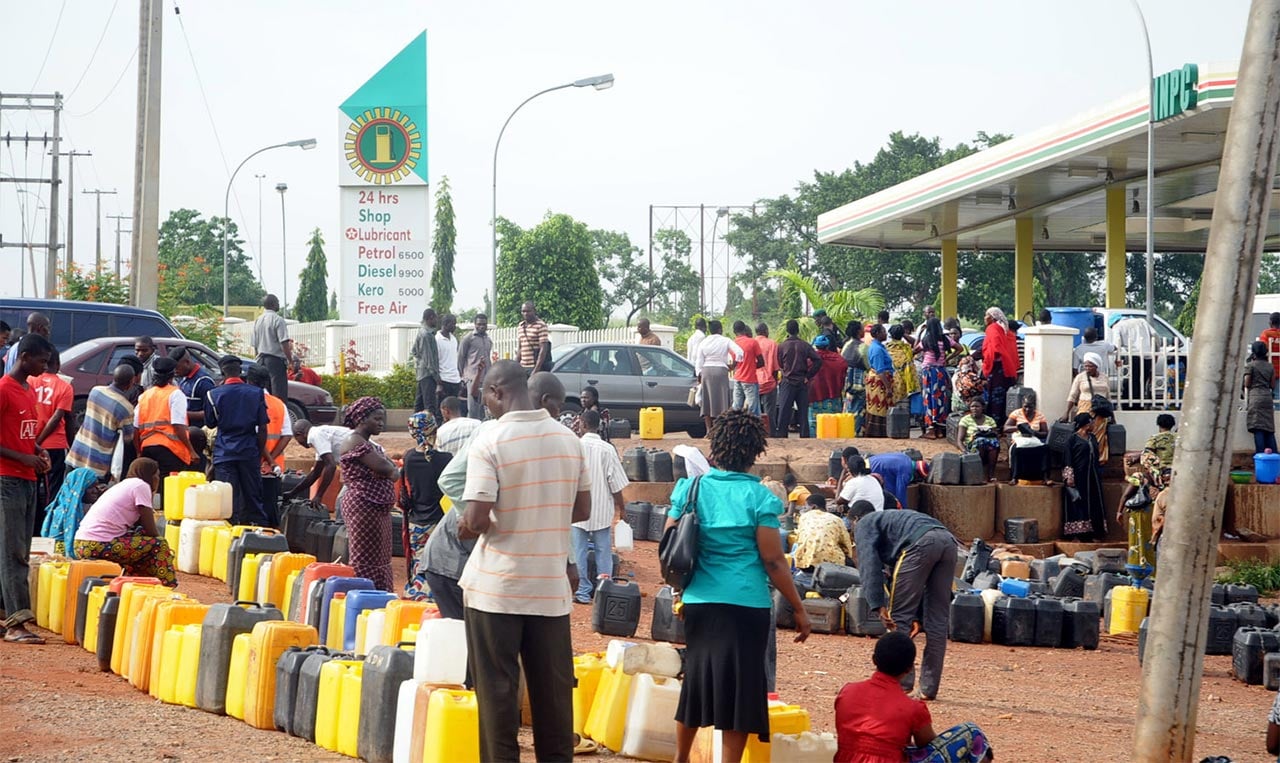As Nigeria grapples with the recurring issue of fuel queues, the President of the Petroleum and Natural Gas Senior Association of Nigeria, Mr. Festus Osifo, has shed light on the underlying reasons behind this persistent problem. Speaking at the 2024 PENGASSAN Energy and Labour Summit in Abuja, Osifo identified the weak and outdated distribution chains in the downstream sector of the oil and gas industry as a major culprit.
A Distribution Chain in Shambles
Osifo’s words paint a stark picture: “Nigeria’s distribution chain is outdated and insufficient to meet the demands of its large population.” With a single point of product importation and reliance on trucks to distribute across the nation, the system is woefully inadequate. This outdated infrastructure is unable to keep pace with the country’s growing needs, leading to queues that seem to appear and disappear without rhyme or reason.
Bad Roads and Flooding: The Perfect Storm
But that’s not all. Osifo also pointed to the sorry state of Nigeria’s roads and the impact of flooding as significant contributors to the scarcity of fuel across filling stations. The combination of these factors creates a perfect storm that leaves motorists stranded and filling stations empty.
Also Read: Rivers, Abia States Confirm Mpox Cases Amidst National Outbreak
APC Stakeholders Call for Removal of Oil and Gas Regulatory Heads Over Sector Mismanagement
A Call to Action: Urgent Reforms Needed
Osifo’s message to the government is clear: urgent reforms are necessary to address these challenges. He advocates for the development and strengthening of the country’s value chain to ensure a more efficient and reliable distribution system. Without these improvements, Nigeria will continue to face recurring fuel shortages, leaving citizens frustrated and the economy hindered.
The High Cost of Production: A Security Burden
Osifo also highlighted the high cost of local production, which is 15% to 20% higher than in other parts of the world. The burden of security in the oil and gas companies is a significant contributor to these costs. Osifo urges the government to take over security responsibilities from investors, which would significantly reduce production costs and make the industry more competitive.
Strengthening Laws and Sanctions: A Necessary Step
Finally, Osifo called for harsher penalties to deter oil theft and encourage integrity within the industry. Stronger laws and sanctions are necessary to prevent bad behaviors and ensure that those who engage in oil theft are held accountable.




